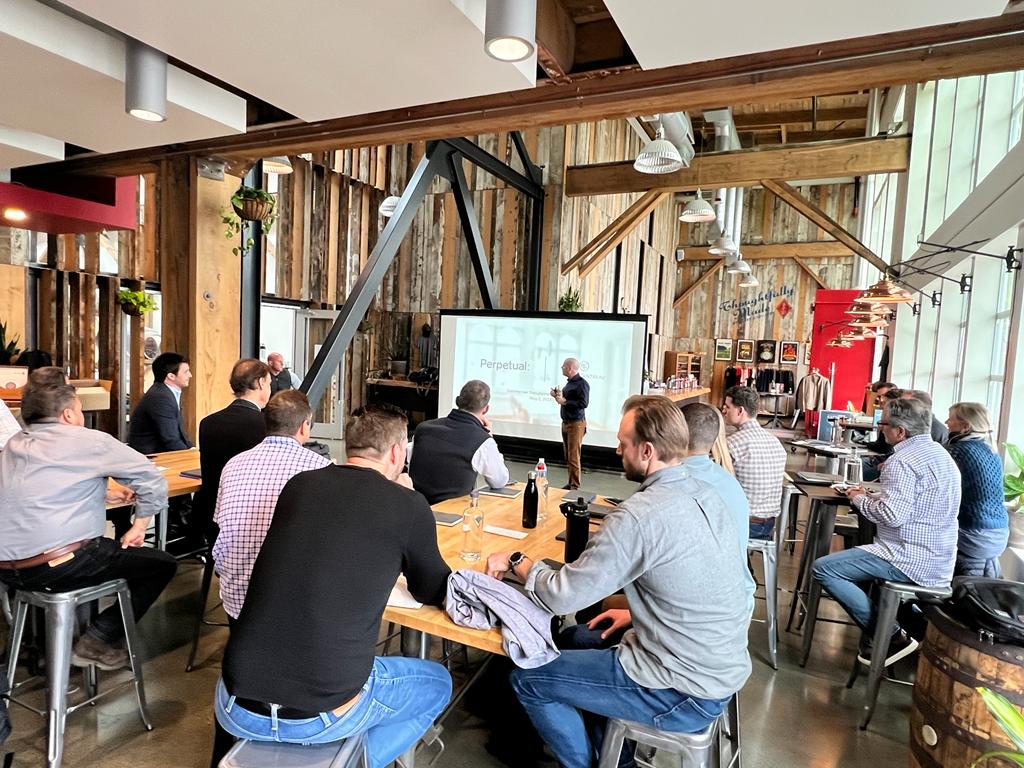As a provider of strategic transatlantic talent advisory services, we are deeply interested in the topic of team performance, especially in leadership teams within thriving companies and brands. Through our interactions with numerous organizations, we have discerned a consistent pattern – the true key to success often lies not solely in having a differentiated product, brand, or strategy but in the composition of the team, how they collaborate, and the culture they foster.
In this article, we will delve into a critical aspect of high-performing teams: the role of clear, shared values in shaping a strong culture that, in turn, fosters winning behaviors and results. To illustrate this, we will share our own experiences at Perpetual, a company deeply committed to values-driven leadership.
The Norm vs. Exceptional Values
Before we explore the impact of values on high-performing teams, it’s important to distinguish between “the norm” and exceptional values in corporate settings. Many organizations profess the importance of values, but often, these values are nothing more than a list of generic, uninspiring attributes. They may be displayed on office walls or company websites, but they lack genuine resonance and do not influence behavior. These are the “norm” values that don’t translate into high performance.
In contrast, exceptional values are those that are deeply ingrained in the organization’s culture, guiding how team members interact and make decisions. They serve as genuine totems of the company’s identity and principles. In this white paper, we will explore how to move from the norm to exceptional values and the profound impact they can have on a team’s performance.

Setting the Stage: Time and Space
One of the initial indicators of a leader’s commitment to their team’s development is their willingness to invest time and resources in off-site gatherings. These “off-sites” provide a crucial opportunity for teams to step away from day-to-day tasks and collectively work on improving the business rather than just in it. These events are integral to the success of many high-performing organizations.
At Perpetual, we place significant emphasis on investing in our team’s development, which includes an annual company retreat. This retreat involves taking the entire team out of the office environment for five days. While this incurs both a financial cost and short-term revenue loss, we recognize the long-term benefits of such a well-planned event.
The location and ergonomics of these events play a vital role. To facilitate meaningful discussions about values, it’s essential to choose a setting that feels special and conducive to open and honest conversations. We believe that the more unconventional and unique the setting, the more suitable it is for these discussions. Additionally, the ability to move the team to different locations within the setting can help change the dynamic when needed during discussions.
The Process of Value Exploration
With the right setting in place, the next step is to establish a process for exploring and defining the team’s values. At Perpetual, this process is led by team members, including both senior leaders and junior colleagues. This approach signals that defining values is a collective effort, reinforcing the importance of team engagement.
The process begins by revisiting the existing values and assessing their relevance. In our case, the initial values lacked the resonance and uniqueness we sought. It became evident that they needed a refresh.
Next, an online survey is conducted to gather the team’s input on their top values from a predefined list. This list is fairly generic, but it provides a starting point for discussions. The goal is to identify values that resonate with the team.
Once the top values are identified, they are written on cards and displayed on a wall. Team members are encouraged to share anecdotes and stories related to each value. This helps bring the values to life and ensures they are not just words on paper.
Benchmarking other companies’ values is another crucial step in this process. Studying the values of respected companies in your industry and beyond can provide valuable insights and inspiration for your own values.

Value Creation and Refinement
During the discussions, the team’s goal is to create a set of values that are both meaningful and intriguing. These values should reflect the team’s shared ideals and set them apart from generic corporate values.
One pivotal moment in our value creation process was the emergence of the value “Never Settle.” This value encapsulated our commitment to service excellence, professional humility, and continuous improvement. It was a product of genuine team debate and reflection.
Creating values is an iterative process that requires time and thoughtful discussion. It’s important to allow flexibility in the process, letting the conversation evolve naturally. The result should be values that the team collectively believes in and is passionate about.
Embedding Values into Culture
Once the values are defined, the next step is to embed them into the team’s culture. Values should become more than just words; they should become part of the team’s DNA.
To achieve this, several key steps are essential:
1. Language and Logic:
Words matter, and it’s crucial to choose language that resonates with all team members.
The team should ensure that the values pass the “MECE test” – mutually exclusive and collectively exhaustive – to avoid overlap or gaps in meaning.
2. Integration:
Values should quickly become part of the team’s everyday language and behavior.
Celebrate and recognize team members who embody these values in their actions.
3. Marketing and Branding:
Authentic values can serve as a powerful marketing tool, offering insights into the organization’s culture.
Unique and intriguing values can attract customers and potential team members who align with those principles.
4. Attracting Future Team Members:
Clear values that are authentically championed by the current team can significantly influence the decision-making process of new hires.
Conclusion
In conclusion, values matter immensely in the development of high-performing teams. Clear, shared values form the foundation of a strong culture, which, in turn, drives winning behaviors and results. Our journey at Perpetual exemplifies the process of cultivating meaningful values and integrating them into the fabric of our organization.
While our journey continues, we believe that the thoughtful gestation process of defining, refining, and living our values has already set us on a path toward sustained high performance. The first step for any organization aspiring to achieve exceptional results is to embark on a similar journey of values exploration and integration.

Perpetual Core Values:
Never Settle: We seek always to meet our clients’ requirements or die trying. We seek to provide service excellence but have the humility to know we will never quite get there… there is always something to improve, always something new to learn.
Happy Days: We seek to take our profession very seriously but not ourselves. Life is too short not to have some fun en route. Delivery comes first. A close second is maintaining a smile and perspective in all that we do.
20/20: In everything we do, we aim for transparent integrity. We do what we say and we say what we think. This dictates how we work with our clients and how our team is involved in all aspects of our company’s development.
Dare + Share: We have got where we are as a result of collaborative entrepreneurism. We know our future success will require perpetual innovation and audacity. Together anything is possible. We love working with clients and brands that share this value.
Look Up: Probably our most oft-pronounced value. It talks to the bigger picture… wellness, kindness, and respect for the wider Perpetual family and the community in which we live. When we look after each other, everyone wins. Look up.
Values matter, and they are the compass that guides high-performing teams toward success. Time for a refresh?
Maybe we can help facilitate?










